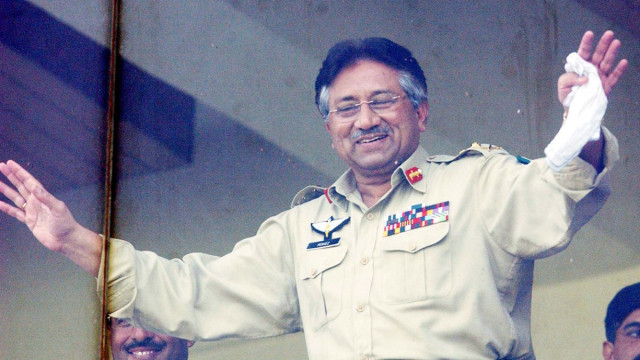Pakistan's Supreme Court Affirms Death Penalty for Ex-Military Leader Pervez Musharraf in Treason Case
- Posted on January 10, 2024
- Legal
- By Arijit Dutta
- 382 Views
Pakistan's Supreme Court upheld the death penalty for former military dictator Pervez Musharraf over a high treason case, rejecting the Lahore High Court's previous ruling. Despite his passing, the court upheld the verdict, deeming the LHC's actions "null and void." Musharraf, a controversial figure, faced a tumultuous legal battle post his presidency.
 Image Source -www.outlookindia.com
Image Source -www.outlookindia.com
In
a monumental decision, Pakistan's
Supreme Court reinforced the death penalty for the late former military
dictator, Pervez Musharraf, in a high treason case. This verdict, initially
awarded by a special court in 2019, faced scrutiny when the Lahore High Court
declared all actions against Musharraf unconstitutional. However, the apex
court firmly rejected this stance, asserting its validity.
Chief
Justice of Pakistan, Qazi Faez Isa, deemed the Lahore High Court's decision as
unsustainable and set it aside, emphasizing the legitimacy of the earlier
ruling. The controversy surrounding Musharraf's case extended beyond
legalities. Lawyer Hamid Khan represented Musharraf in court, presenting the
case as a constitutional matter and aiming to reverse the LHC's order.
Despite
efforts from Musharraf's counsel, including Salman Safdar, to engage his family
in the legal proceedings, their absence and non-response were highlighted by
the Supreme Court during the appeal, ultimately rejecting the former
president's plea.
CJP Isa's bench not only nullified the Lahore High Court's judgment but also pointed out its contradiction with the law. This decision persisted despite Musharraf's passing in February 2023. The legal battle against Musharraf stemmed from his actions during a period marked by controversy, including the imposition of emergency in 2007, leading to the imposition of the death penalty by a special court in 2019.
Pervez
Musharraf's legacy is fraught with contentious moments, notably his tenure as a
military ruler and his involvement in significant political events. From
surviving assassination attempts to initiating the Kargil War in 1999 and
subsequent political upheavals, Musharraf's career remained embroiled in
controversy. His political downfall started with his resignation in 2008,
followed by self-imposed exile, and continued with legal battles upon his
return to Pakistan.
The
apex court's verdict, upholding the death penalty against Musharraf, stands as
a landmark decision, marking the first time a former high-ranking military official
faced such a sentence in Pakistan. Despite his demise, the legal saga
surrounding Musharraf's actions remains a significant chapter in Pakistan's
political and judicial history.




